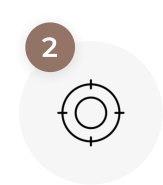Just creating content randomly really means that you’ll get random results. By creating a strategic plan you’re much more likely to get more effective results.
This is my second blog in a series of 8. Last time we looked at why it’s important to learn to use content marketing within your business. This has now become even more important since the prediction for 2015 is that Google will potentially favour website content and relevancy over anything else.
So now in order for this content marketing plan to work for your business, it’s handy to start documenting a strategy – this will for sure help your business stand out from your competitors.
I know documenting can be time-consuming and frustrating, but believe me once it’s done it will make your marketing so much more purposeful and productive.
So when you’re staring at a blank sheet of paper wondering what on earth to write, here are some common questions to help you:
Is there a common template I can follow?
There is no common template per se, as each business is very different and should approach content marketing in a unique and individual way, based on its own needs and wants. Having said this, there are some common elements that can be included – see further down below.
Why does it have to be documented?
Although it’s not essential that its documented, from my experience it will help you visualise and then follow up you plan. By keeping it in your head often leads to not acting up on it.
What types of information should my content marketing strategy cover
There are many elements that make up a content marketing strategy, here are just a few that may help you:
A business plan to grow… This is optional but in order to make the marketing strategy work for you it’s important for it to work alongside your business plan objectives. If your business has no processes, this is a good place to start. Documenting processes will bring to light gaps and opportunities. Sometimes it’s not until you go through these tasks that you can see the potential. Once this has been done, it’s then good to share this within your business. In doing so you are making sure everyone’s expectations are aligned with the plan.
A plan for content marketing. So now you’ve worked out your processes, look at the content that goes around them. This will give you a good base with where to start. Look at the common questions that you answer and then plan to convert this into content that your market seeks to understand. By doing this you are filling a void your market looks to reach out to. At this stage too, don’t focus on the “where’s the return on my time”, this will come in time.
Your story. As part of your strategy you will need to determine what stories you tell. This will then create your framework or template from which all company members can relate to and will share with your audience.
Choose which channels. This is about placing content into the channels that your market hang out in. Think about what tools they use, eg Facebook, Twitter or maybe some of the other social media sites. Posting content in the right channels is key to succeeding with content marketing.
Next time we’ll look at what types of content you need.
Don’t miss out on this mini-series, sign up with your email below to keep in touch.




